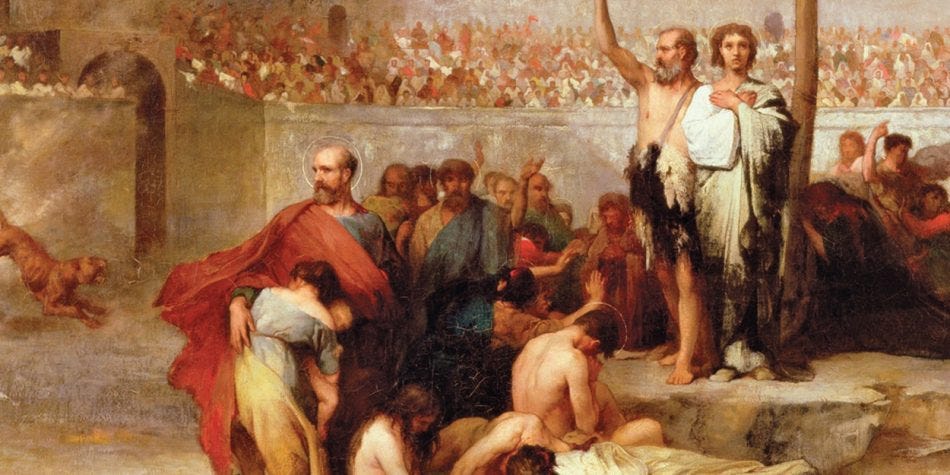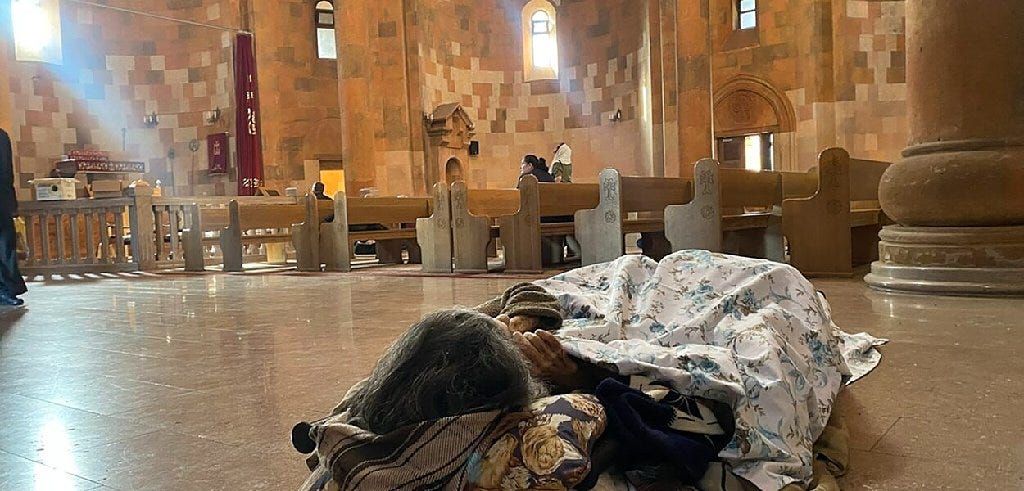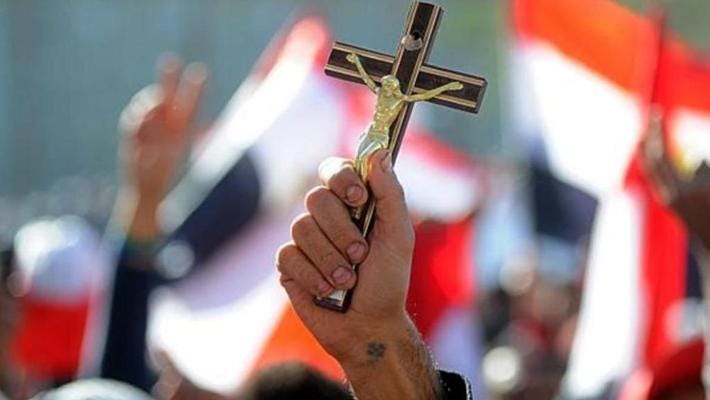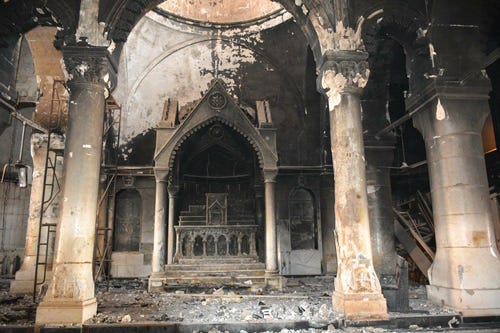Christians are Being Killed Worldwide
Christian Persecution has Never Disappeared
The headlines trickle in, then blur: churches burned in the night, catechists shot on a roadside, a pastor dragged from his home, a bishop banished, congregations monitored and fined for worshiping without permission. This is not sporadic misfortune. It is a map. Open Doors estimates that more than 380 million Christians live under “high” levels of persecution and discrimination today, with hundreds of millions more facing pressure to silence their faith in public. That figure is not a statistic for specialists. John L. Allen Jr., Vatican journalist and senior analyst for Crux, pointed out in The Global War on Christians, that, “Christians today indisputably are the most persecuted religious body on the planet, and too often their new martyrs suffer in silence.” It is an alarm for everyone who cares about human dignity and the future of free societies.
Scripture refuses to let us outsource this to a committee. “If one member suffers, all suffer together” and “Remember those who are in prison, as though in prison with them.” The welfare of Christians across the world is the responsibility of the entire Body of Christ, and beyond the Church it is the test of any nation that claims to honor human rights. Religious liberty is not a lifestyle carve-out for the devout. It is a biblical and Christian heritage, handed on through covenants and consciences, which a people can lose by neglect as easily as by decree.
The pattern is painfully clear. In Nigeria, years of mass killings, kidnappings, and village-level terror have bled communities in the Middle Belt and the northeast. The U.S. Commission on International Religious Freedom again urged the U.S. State Department to designate Nigeria a “Country of Particular Concern,” citing systematic and egregious violations and a state response that remains inadequate to protect churches, mosques, and traditional communities from violent actors. The July 2025 country update documents repeated attacks, including the murder of scores of Christians in Benue State and targeted assaults by jihadist and bandit groups.
In China, authorities escalated a nationwide strike against the renowned Zion Church network this month, detaining nearly 30 pastors and leaders across multiple cities and seizing the founding pastor, Ezra Jin. The move fits a longer campaign to “Sinicize” religion by bending doctrine and governance to Party control. House churches that refuse registration are harried, split, and re-arrested; registered communities are pressed to conform their worship and catechesis to political orthodoxy. The target is not merely Christians but the very idea that conscience owes allegiance to God before the state.
Nicaragua shows the same logic in a smaller frame. Processions banned. Clergy expelled or exiled. Bank accounts seized. Monasteries closed. The regime has treated the Church as a rival to be humiliated and removed from public life. Analysts across the spectrum now describe a full-scale crackdown on Catholic and Protestant communities alike, with the government hurling slurs at the Holy See while dismantling the Church’s institutions on the ground. This is how authoritarianism consolidates itself: strip the parish of credibility, isolate the shepherds, scatter the flock.
These are only three snapshots from a global reel that also involves South and Southeast Asia, the Middle East, and parts of Latin America and Africa. Open Doors’ 2025 World Watch List charts the trendlines, including where violence flares and where it strategically cools to keep pressure invisible. The point is not to tally pain but to notice the common claim: governments or movements that fear the Gospel’s independence of judgment will always seek to domesticate or destroy it.
The Catholic Church gives us the framework to think and act with clarity. Dignitatis Humanae states that “the human person has a right to religious freedom,” and that “no one is to be forced to act in a manner contrary to his own beliefs… whether privately or publicly, whether alone or in association with others, within due limits.” The text adds the deeper reason: “the truth cannot impose itself except by virtue of its own truth,” entering the mind “quietly and with power.” Coercion profanes the very act of faith.
The Catechism gathers the doctrine into law of life. Men and women are “bound to seek the truth, especially in what concerns God and his Church, and to embrace it as they come to know it.” Civil authority, therefore, must recognize and protect this search as a genuine right, while prudently setting “due limits” according to the common good rather than positivist convenience. This is not relativism. It is the logic of truth and love, which rejects forced worship and welcomes public witness.
Because religious liberty flows from what the human person is before God, its defense cannot be parochial. It belongs to everyone. When Christians are massacred or driven underground, the harm does not stop at the nave. The social fabric frays. Schools, clinics, charities, and habits of trust collapse. A people forgets how to negotiate differences without brutality. The result is not neutrality. It is a civic theology of power in which the strongest belief—usually the state—claims the right to define meaning. The United States recognized this when it made international religious freedom a matter of national policy in 1998, and again this year when Church leaders and human rights advocates marked the October 27 observance by urging Americans to stand with the persecuted.
There is also a covenantal dimension we ignore at our peril. From Abraham onward, God calls a people who freely choose Him. Israel’s “All that the Lord has spoken we will do” was public and binding. The New Covenant in Christ is likewise public, not private; it builds a visible Body and sends disciples to teach all nations. Religious liberty is therefore not a concession to pluralism but an implication of the Gospel itself. God wants sons and daughters, not hostages. A regime that punishes that freedom denies not only a right. It denies the nature of love.
So what must we do?
First, refuse to look away. Learn the names of bishops, pastors, sisters, catechists, and lay leaders who have been jailed or driven from their homes. Pray for them by name at parish intercessions. Offer Masses and holy hours for specific communities under assault. “Remember those who are in prison” is a command, not a suggestion.
Second, educate and organize. Read Dignitatis Humanae and Catechism 2104–2109 in your homes and schools. Teach young Catholics that religious liberty is a biblical heritage, not a political bargaining chip. Form parish advocacy teams to track monthly developments in key countries and to support organizations that monitor and assist the persecuted.
Third, act in public. Encourage your representatives to make international religious freedom a priority in diplomacy, sanctions, and refugee policy. Support legislation that protects conscience rights for medical workers, teachers, and parents. Partner with ecumenical and interreligious allies on targeted campaigns, because the enemies of religious freedom do not bother to distinguish denominations when they raid a chapel.
Finally, witness without apology. The Church’s defense of freedom for all is not an evasion of truth but its friend. We can say, as Dignitatis Humanae does, that the fullness of the truth subsists in the Catholic and Apostolic Church, and we can defend the civil freedom of non-Christians to worship according to conscience. The Christian who protects the synagogue or the mosque is not diluting the Gospel. He is honoring the God who does not coerce the human heart.
We will either remember this heritage or we will be made to remember it by loss. Religious liberty erodes slowly at first, then suddenly. A permit delayed. A procession banned. A priest questioned. A mother warned. A door kicked in. If we treat the massacres of Christians as sad but distant, the distance will shrink. If we live our covenantal duty now—praying, teaching, advocating, and suffering with those who suffer—we will not only help our brothers and sisters. We will keep our nations human.
“Where the Spirit of the Lord is, there is freedom.” The Spirit is not confined by walls or warrants. But men and nations can sin against the conditions of freedom. Let us fight for those conditions wherever they are under attack. Let us do it because we are Christians. Let us do it because we are neighbors. Let us do it because a people that forgets how to let men worship will eventually forget how to let men live.







